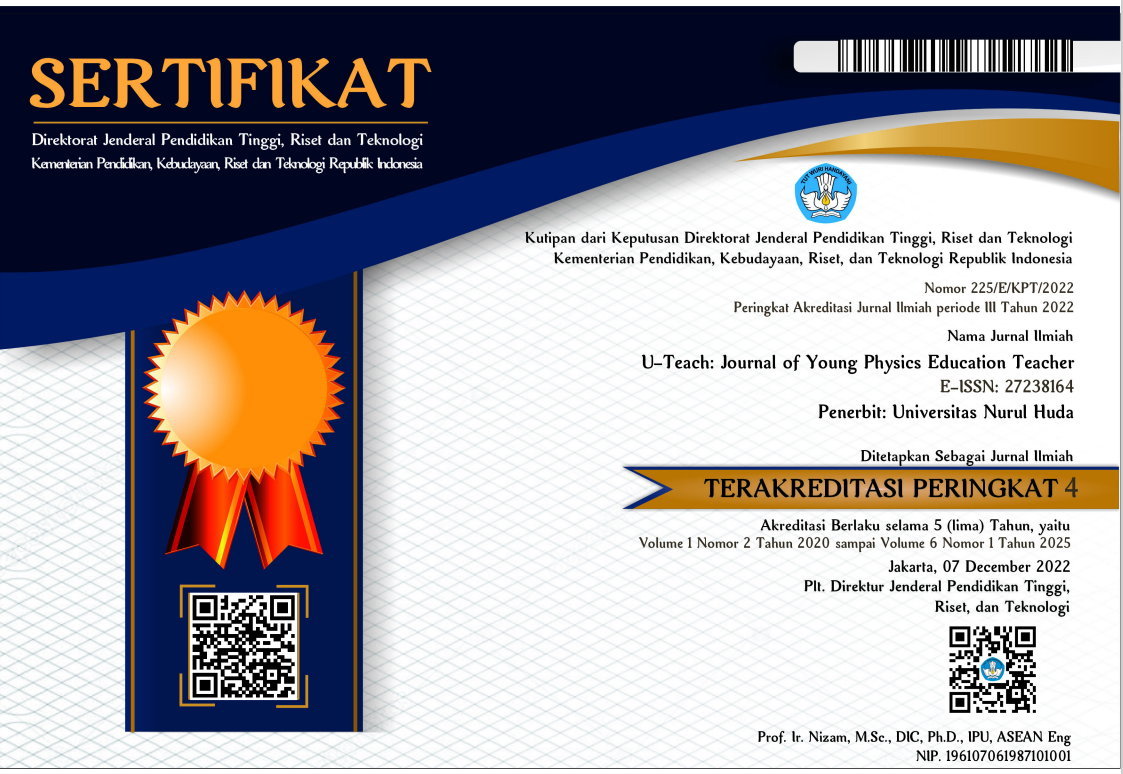Waste to Energy Project-Based Learning: Evaluasi Relevansi Program dan Kesiapan Sumber Daya dalam Pembelajaran Fisika Lingkungan
DOI:
https://doi.org/10.30599/uteach.v5i2.1100Keywords:
CIPP model, program evaluation, project- based learning, waste to energyAbstract
Waste management and the need for renewable energy are global issues that require innovative solutions, including in education. Project-Based Learning is an effective approach to connecting theory and practice, providing students with learning experiences that are relevant to modern environmental challenges. This study evaluates the relevance of the Waste to Energy Project-Based Learning program and the readiness of resources to support project-based learning in Environmental Physics courses at a private university with a CIPP model that is limited to context evaluation and input evaluation. With a descriptive qualitative approach, data were collected through interviews, questionnaires, and document analysis, then analyzed thematically and descriptively with Excel. The results of the study indicate that this program is relevant to the needs of education in the field of environmental physics and is supported by adequate lecturer competence. However, there are challenges in the form of student readiness, limited facilities, and funding. Recommendations include providing introductory materials, strengthening facilities, and collaboration with external partners. In conclusion, this program has the potential to be further developed as an innovative and sustainable project-based learning model, with further studies needed to evaluate its impact in various institutions
Downloads
Downloads
Published
How to Cite
Issue
Section
License
Copyright (c) 2024 Hermansyah Hermansyah, Siti Sriyati

This work is licensed under a Creative Commons Attribution-ShareAlike 4.0 International License.






